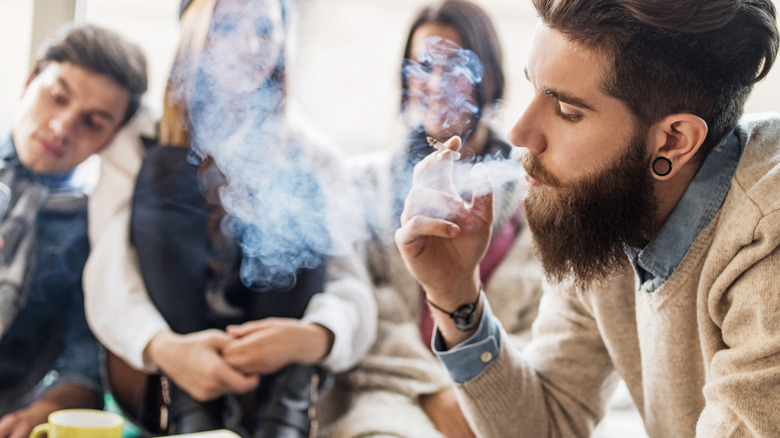The US State That Has Highest Diabetes Death Rates And Highest Depression Rates At The Same Time
West Virginia may be known for its scenic Appalachian landscapes, but the state faces significant public health challenges. Not only is the life expectancy in West Virginia lower than the national average, but it also has the highest rate of both diabetes and depression.
According to the U.S. Centers for Disease Control and Prevention (CDC), in 2020, 18.4% of U.S. adults were living with depression. But when the research dug deeper to uncover that percentage per state, it was found that not only did West Virginia have the highest rate of depression, at 27.5%, but it was higher than the national average and more than twice that of Hawaii, which has the lowest rate at 12.7%. When the CDC looked into the highest rate of diabetes-related deaths, West Virginia came out on top with 41.1 deaths per 100,000 people.
What's both interesting and tragic about these figures is that the areas with the highest rates of depression were found in the Appalachian and Mississippi Valley regions, as well as in Missouri, Oklahoma, and Washington. When looking at the states with the highest diabetes mortality, after West Virginia, Arkansas, Mississippi, and Oklahoma are all next in line, respectively. In other words, although West Virginia is at the top, there's a commonality between all these places that's leading to physical and mental unwellness.
Factors driving West Virginia's diabetes and depression
Although West Virginia isn't the poorest state in the U.S., it does fall in the top five poorest states (via Friends Committee on National Legislation). West Virginia is also the least educated of the 50 states. "While [West Virginia] boasts a high percentage of adults with at least a high school diploma, it falls behind significantly in higher education attainment, with low percentages of adults holding bachelor's and graduate degrees," WalletHub analyst Cassandra Happe told Newsweek. Based on quality and accessibility, the World Population Review gave West Virginia a 1 out of 50 in 2025. These socioeconomic challenges are strongly associated with poorer physical and mental health outcomes.
West Virginians also have the highest rate of smoking in the U.S., at 21%, according to the American Lung Association, and with 41.2% of residents being obese, that's another serious problem (per CDC). Not only is obesity one of the top causes of diabetes, per the Mayo Clinic, but smokers have a 30% to 40% greater risk of developing diabetes, according to the CDC.
High rates of depression in West Virginia may be influenced by economic barriers to care, limited access to providers, and persistent mental health stigma related to educational disparities. "A major factor is the lack of health providers," psychiatrist Dr. Suzanne Holroyd told U.S. News & World Report, adding that some people have to wait months to see a doctor. "This is true for adults and children. For example, there has been a recent increase in child and adolescent suicide attempts, and even for these patients, outpatient psychiatric care has been difficult to obtain."
Improving diabetes and depression outcomes in West Virginia
Making healthy changes can be challenging, especially when access to care, nutritious food, or even reliable information is limited. But small, manageable steps can still make a meaningful difference. Cutting back on smoking, eating a well-rounded diet (your ultimate guide to grocery shopping), and finding ways to move your body for 20 to 30 minutes a day can all help reduce the risk of diabetes and improve mental well-being.
Limited access to mental health care is a major barrier in West Virginia, and long wait times aren't the fault of those seeking help. Fortunately, support options like mental health apps and text-based therapy are becoming more available and affordable. If you've grown up being told to just tough it out, know that many people feel the same — as of 2019, 280 million people worldwide had been diagnosed with depression, according to the World Health Organization — but reaching out for help is not a weakness. It's a courageous step toward healing, and no one should have to go through it alone.


